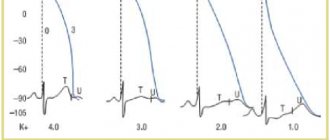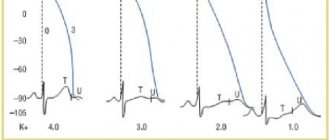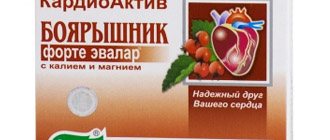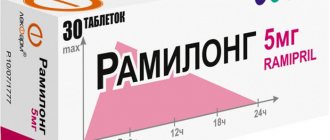Foods rich in potassium
The element is present in plant and animal foods.
As for plants, the most potassium is in their young parts, for example, fresh shoots, greenery, young leaves
leafy vegetables. However, fruits and other parts of plants are also not deprived of it.
The leaders in potassium content are dried apricots, bananas, and baked potatoes. It is present in bread, cereals, melon, legumes, millet, oatmeal, apples, cabbage, grapes, beets, avocados, etc.
There is a lot of potassium in such a food additive as pollen.
Among animal products, meat, liver, and fish have the highest content of the element. It is also found in milk and dairy products.
Sources of potassium and magnesium
It is noteworthy that potassium and magnesium does not make itself known at first. The insidiousness of diseases developing due to a lack of potassium and magnesium lies in the fact that they do not appear overnight, but gradually. This is explained by the fact that both potassium and magnesium have antagonists in the body. These are substances that replace them, but over time either the resource is exhausted or the alternative itself is destructive.
The best way to prevent deficiency would be to actively consume potassium and magnesium naturally - through food. But, unfortunately, the concentration of these microelements in ordinary products is not so high as to cover a person’s daily needs. This partly explains the development of heart disease over time.
So, to prevent potassium and magnesium deficiency, make sure that your daily diet includes the following foods:
- potassium
- potato,
- cabbage,
- carrot,
- raisin,
- dried apricots,
- prunes,
- figs,
- dates,
- bananas,
- nuts,
- Wheat groats,
- oat groats,
- buckwheat grain,
- wheat bran
- seaweed
- sesame
- almond
- Pine nuts
- cocoa
- wheat bran
- dried apricots
- shrimps
- soya beans
Increased need for potassium
The need for potassium increases when it is lost in significant quantities by the body. For example, this is observed during intense sports, increased sweating, and kidney diseases, which are accompanied by impaired kidney function.
Potassium loss occurs when taking diuretics (they are used mainly for kidney disease and chronic heart failure). Sometimes drugs with a diuretic effect are also used by healthy people for the purpose of weight loss. Accordingly, they also need an increased supply of potassium.
People with an increased need for the element often need to use potassium in their medications.
Description of the drug POTASSIUM-NORMIN (KALII-NORMIN)
Concomitant administration with potassium-sparing diuretics (including triamterene, spironolactone, amiloride) can lead to severe hyperkalemia due to a decrease in renal excretion of potassium ions.
ACE inhibitors are a risk of developing hyperkalemia because ACE inhibitors reduce the secretion of aldosterone, which leads to potassium retention in the body.
Beta blockers increased both the maximum serum potassium concentration and the time required to return to baseline in patients receiving acute intravenous potassium loading.
NSAIDs are a risk of developing hyperkalemia due to the development of secondary hyperaldosteronism after inhibition of prostaglandin synthesis in the kidneys.
Heparin reduces the synthesis of aldosterone, which can lead to the development of hyperkalemia, especially in cases of existing renal failure or other conditions that impair potassium excretion from the body.
The administration of potassium supplements is not recommended in patients with severe and complete heart block who are simultaneously using cardiac glycosides. When using potassium supplements to correct hypokalemia, careful monitoring of the patient's condition is required.
Simultaneous use with insulin and sodium bicarbonate reduces the potassium content in the blood serum.
The following drugs that contain potassium or predispose to the development of hyperkalemia may lead to accumulation of potassium when used concomitantly with potassium preparations:
- aliskiren, angiotensin II receptor antagonists, cyclosporine, tacrolimus.
Potassium chloride is pharmaceutically compatible with the following solutions for intravenous administration:
- Ringer's solution in combination with glucose (dextrose) for injection, Ringer's lactate solution in combination with glucose (dextrose) for injection, 5% glucose (dextrose) solution in Ringer's lactate solution for injection, glucose (dextrose) solution in combination with sodium chloride, 5% solution of glucose (dextrose) in 0.9% sodium chloride solution, 2.5%, 5%, 10%, 20% solutions of glucose (dextrose) in water for injection, Ringer's solution for injection, Ringer's lactate solution for injection, 0.45%, 0.9 %, 3% sodium chloride solutions.
Potassium chloride is pharmaceutically incompatible when diluted with solutions containing amikacin sulfate, amphotericin B, amoxicillin sodium, benzylpenicillin, diazepam, dobutamine hydrochloride, ergogamine tartrate, etoposide with cisplantin and mannitol, methylprednisolone sodium succinate, phenytoin sodium, promethazine hydrochloride, sodium nitroprusside, str. Septomycin sulfate , mannitol, a sterile fat emulsion containing soybean oil and lecithin.
Biological role of potassium
Functions of potassium:
• Together with sodium and chlorine, it ensures water-salt balance, maintains cell turgor and osmotic pressure. In general, these elements are responsible for the processes that ensure the preservation of the shape of cells, the content of electrolytes in them, the full course of metabolism, that is, for the basic processes necessary for life. • Only in the presence of potassium is energy obtained from carbohydrates, that is, potassium is responsible for maintaining strength, physical activity, and muscle function. • Plays a huge role in the functioning of the nervous system, conducting signals along the nerves. • Responsible for maintaining normal heart rhythm, participates in the work of the myocardial conduction system. • Reduces the risk of strokes and heart attacks. • Responsible for maintaining the strength and limited permeability of cell membranes. • Prevents magnesium loss. • Promotes the removal of excess fluid from the body, prevents its stagnation and the formation of edema. • Promotes the normal functioning of the body's self-cleaning systems. • Prevents the appearance of chronic fatigue and overwork.
Benefits of potassium and magnesium
Potassium is an active component of water-salt balance. Up to 98% of its total amount (which is 200-250 grams in an adult body) is concentrated inside the cells, which ensures stable osmotic pressure and fluid balance at the cellular level. In addition, potassium ensures the regulation of acid-base balance, in which other minerals are also involved. Potassium is especially necessary for the functioning of soft tissues - internal organs, glands, blood vessels, muscles (including the heart).
Magnesium in its predominant quantity is localized in the tissues of the body and only 2% of magnesium is concentrated in biological fluids. Magnesium regulates the state of the cell membrane and the transmembrane transport of calcium and sodium ions. Magnesium is an active participant in reactions involving the formation, accumulation, transfer and utilization of energy, free radicals and their oxidation products. The most important role of magnesium is that it is a powerful anti-stress factor. Magnesium inhibits the development of excitation processes in the central nervous system and reduces the body's sensitivity to external influences.
What do these two microelements have in common? Why are they usually remembered together? Because, first of all, these two microelements are combined in their positive life-supporting effect on the cardiovascular system.
To understand the role of potassium and magnesium in metabolism, it is important to know that the antagonist of potassium is sodium, and magnesium is calcium. This means that with the slightest lack of potassium and sodium in all internal processes, they are replaced by sodium and calcium, respectively. At the cellular level, sodium also brings with it water molecules, this is the path to swelling. Calcium allows muscles to contract, but does not allow them to relax. In total, normal processes in cardiomyocytes (heart cells) are disrupted.
What is the positive effect of potassium and magnesium ?
- providing a cardiac impulse, which underlies the prevention and elimination of various types of arrhythmias;
- normalization of myocardial contractile function, and this is an opportunity to prevent or recover from heart failure;
- ensuring the elasticity of the walls of blood vessels, which is a necessary measure in the prevention and treatment of coronary heart disease and angina pectoris;
- decreases blood viscosity and prevents the formation of blood clots, this is an integral element in the treatment and prevention of heart attack, ischemia, angina, and strokes;
- reducing the development of atherosclerotic plaque, this is a preventive and therapeutic measure in relation to atherosclerosis, arterial hypertension, angina pectoris, heart attacks and strokes;
- regulation of metabolic processes in the heart muscle, normalization of metabolism in the myocardium and providing it with energy.
With a lack of potassium and magnesium, the following negative processes tend to develop:
- spasm of the heart muscle, and at the same time pain and discomfort in the heart area - the myocardium contracts, but is unable to relax;
- disturbance of trophic processes in the myocardium - relaxation of the myocardium entails the flow of blood and oxygen into diastole, and if at first the body uses some reserve forces, then over time the disturbance of trophism leads to hypertension, arrhythmia, heart failure;
- disturbance of heart rhythm, as the conduction pathways of the heart are blocked;
- pain syndrome is a companion to any spasm, and not just in the heart; Thus, muscle spasms and pain can be easily eliminated by taking potassium and calcium ;
The price of potassium preparations and how to buy them
If you want to buy potassium supplements, but don’t know where it’s best to do it, contact our company. We offer a large selection of drugs - dietary supplements, vitamins, mineral complexes, and we guarantee their high quality, which is confirmed by numerous certificates. All drugs have a carefully selected composition, where the active elements are contained in the optimal dose. Before going on sale, products undergo a testing process in laboratory conditions, as a result of which they prove their safety and effectiveness. You can buy potassium preparations from our company in any way convenient for you: • through the website. To do this, just register on the resource, look through the proposed catalog, and determine the appropriate products. After sending it to your cart, all you have to do is fill out a short application, make a payment, and order delivery; • by phone. The purchase process is carried out online with the help of our manager. You will need to answer questions from a company representative, devoting only a few minutes of your personal time to this procedure; • in the shop. Here you can personally familiarize yourself with the range of products, as well as receive detailed advice from our specialist on the topic of choosing the most suitable drug. After payment, you can pick up the goods immediately, receiving it in your hands. In order to make cooperation as convenient and effective as possible, we offer you several payment methods, among which you can choose the most suitable one: • cash upon receipt of the product; • cash on delivery at the delivery service; • non-cash transfer, which is easy to carry out through a terminal or at any bank branch. Delivery is carried out as soon as possible and will be carried out using the method you choose. You will see detailed conditions for the provision of services in the corresponding section of our website, and you can also find out by calling the company manager. The contact telephone number for free calls during business hours is indicated on the website pages. By deciding to buy potassium supplements from us, you are making the right choice and getting the opportunity to make a profitable purchase. We have special offers for wholesale buyers, and retail sales are often carried out with current promotions, which also allows you to save money without compromising the quality of the goods. We work for you, and thank you for your trust!






